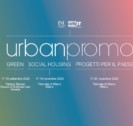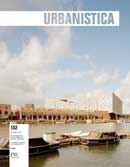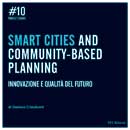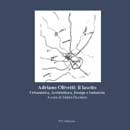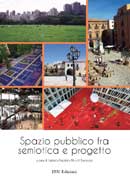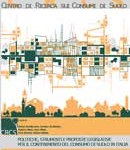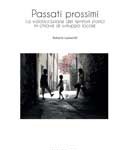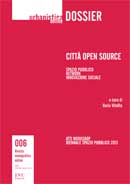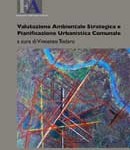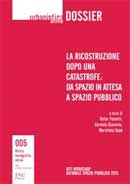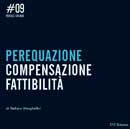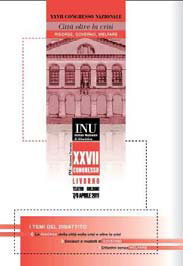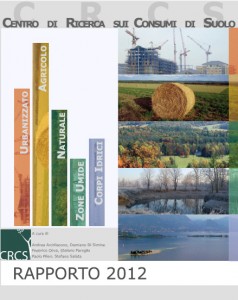3rd ECTP/ Young Planners Workshop 2014 “Spatial planning and energy”
 09/01/2014
09/01/2014
1.- Introduction.
1.1 Young Planners Workshop: an ECTP-CEU project.
ECTP-CEU (the European Council of Spatial Planners – le Conseil Européen des Urbanistes), founded in 1985, brings together 40 000 spatial planners with 27 professional town planning associations and institutes from 25 European countries.
It is an umbrella association providing its members with a common framework for planning practice, planning education, continuous professional development and the definition of professional responsibilities.
ECTP-CEU sets standards of education and conduct for the planning profession; identifies, celebrates and rewards examples of good planning all over Europe, and engages in dialogue with local, national and European governments.
In accordance with these objectives the initiative of this third edition of Young Planners Workshop on Spatial planning and energy seeks to set out young planners perspectives and experiences in frame of new European cities paradigms for energy saving.
1.2.- A project shared with 10th European Urban and Regional Planning Awards 2013-2014.
This Edition of Young Planners Workshop is a project shared with10th European Urban and Regional Planning Awards 2013-2014 organized by ECTP-CEU along with the Committee of the Regions and SPECIAL Project co funded by Intelligent Energy Europe Programme of the European Union.
In this framework, the ECTP-CEU Young Planners workshop proposes the same topic as the 10th European Urban and regional Planning Awards: planning and energy. This offers to young planners the possibility of working on new solutions for new paradigms of planning and energy.
The 2014 Young Planners workshop will also take advantage of the Award Ceremony on the 5th May in Brussels to hold a common meetingworkshop together with Ceremony’s participants and Awards winners.
The organization has scheduled a previous and specific session the day before of the Awards Ceremony for presentations of projects developed by young planners in order to promote discussions and conclusions.
As conclusion of workshop, the ECTP-CEU will publish an e-book with all projects and works developed and presented in the framework of Young Planners Workshop.
2.- Project description.
Transport and housing account an important percentage of urban contamination. Transport and housing account an important percentage of urban pollution and energy intensive so cities have important challenges in order to reduce urban pollution and energy consumption.
Recent Directive 2012/27/UE on energy efficiency, recognizing that buildings account for 40% of final energy consumption in the European Union requires Member States long-term strategy aimed at mobilizing investment in the renovation of residential and commercial buildings, to improve the overall energy efficiency of the housing.
In the years to come, States and Municipalities should implement actions for new models of planning and housing specially for housing rehabilitation in order to adapt housing to energy saving requirements by means insulation of buildings, adapting heating and power supply facilities.
But rehabilitation for saving energy will not suffice, the cities challenge is to become an energy:
-Buildings can change from consuming to producing energy
-Cities can reduce energy use and increase energy production
-Net nil balance can be achieved
-Energy production – Energy use = 0
To address these challenges, urban/spatial planning should be an important tool to promote new requirements of buildings, rehabilitation of neighbourhoods or buildings to improve energy efficiency, sustainable urban mobility, urban design, including urban land uses that allow new forms of urban energy production.
According to these challenges for planning, the Workshop will propose to young planners four possible project topics: Young plannerswill be able to presents both researches and projects which show or highlight:
– How planning can help to deliver sustainable energy solutions?
– How spatial planning can promote buildings rehabilitation to adapt it to energy efficiency.
– Can spatial planning create the Energy Neutral City’?
– How spatial planning can promote design of cities -morphology of plots, model of housings- in order to avoid private transport?
– New tools that allow integrated rehabilitation of adapting buildings for energy efficiency: ways of financing, utilities, buildings owners participation in the preparation of plans and
projects.
The contents of the projects must pay particular attention to:
-strategies, tools and instruments for integration of spatial planning and sustainable energies
-detailed possibilities for implementation of sustainable energy supply and infrastructure in spatial planning at regional and local level
-stakeholder inclusion, participation processes and communication
3.-Rules for admissions
A) Guidelines for abstract submission:
[author’s name; short title abstract; font size Arial 10, 1 page/300 words maximum; with no images; all abstract submissions should be made in electronic form, identifying the software format used (pdf compatible); do not use any footnotes; reference format “Harvard style”; language abstracts should be submitted in English; by submission, organization have all authors’ rights and full permission to publish abstracts]
B) Projects led by young people aged less than 37 years. In the group at least half of them must be under 37 years.
C) Projects can be presented by groups with at least three members and five participants maximum.
D) Deadline for submissions
Submissions should be sent before 31th January 2014 to be selected (ignaciopeman@futurnet.es).
4.- Guidelines for projects:
Author’s name; short title paper; font size Arial 10; max 12 pages plus images and abstract; all projects should be made in electronic form, identifying the software format used (pdf compatible); do not use any footnotes; reference format “Harvard style”; papers should be submitted in English at submission, the organization having all authors’ rights and full permission to publish selected communications
5.-ECTP grants/ Brussels meeting.
1.- Groups participating for the first time in an ECTP-CEU young planners workshop will receive 200-250 Euros per person and a maximum of 1.000 Euros per group.
2.- Groups or persons involved in a second edition 125-150 Euros per person up to a maximum of 500 Euros per group.
C)Submissions Coordinator, Ignacio Pemán Gavín (ignaciopeman@futurnet.es).
6.- Workshop Format.
1.- Introduction
Two audio-meetings are foreseen for comments and questions in order to enrich the final presentations.
The Final presentations will be presented at Brussels on 3rd May 2014 at ECTP headquarters IEE SPECIAL project could be for discussion after presentations.
Participants will be invited to 10th European Urban and Regional Planning Award Ceremony on 5the May 2014 to share results and output with winners/ECTP delegates, with specific questions for round tables
2.- Phases
To take advantage of the exchange of experience among participants, the workshop will be divided into three stages as presented below. At the end of each stage, the interim results will be shared so that the other groups can understand and discuss the problems and suggest proposals to the other groups. Final conclusions with suggestions and comments will be shared in Brussels.
I.-First Stage.
a)Deadline for abstracts.
Submissions and list of groups will be confirmed before 15th February 2014
b) Audio meeting form abstracts presentations.
Objectives of projects will be shared so that all the groups know what the other groups are proposing, to facilitate discussions and suggestions.
Meeting: audio-conference (go to meeting system)
Date: 3th of March 2014
c).- Sending of comments and suggestions.
In order to improve the projects, participants will have two weeks to send comments or suggestions to the rest of the participants.
II.-Second Stage.
a).- Presentation of Projects.
Participants will present projects in an audio-meeting with the same objective to facilitate discussions and suggestions.
Meeting: audio-conference (go to meeting system)
Date: 7th April 2014
b).- Sending of comments and suggestions.
In order to improve the projects, participants will have a month to send comments or suggestions to the other participants.
Date: Up to 21st April 2014
6.- Sending of final projects.
A term of three weeks has been allotted to send final papers depending on the suggestions and comments received.
Date: up to 1th May 2013
III.- Third Stage.
Final presentations at Brussels:
Participants will present projects, conclusions of comments and suggestions will be shared during the workshop.
Meeting: Brussels
Date: 3rd- 5th May 2014
– Saturday 3rd May 2014
Final presentations/Exco ECTP-CEU/ representatives of IEE SPECIAL
– Monday 5th May 2014
The participants will be invited to share projects at the Awards Ceremony: round tables will be organised with young planners/winners/ECTP-CEU delegates.
IV.- Forth Stage.
An e-book will be published with all works presented and
conclusions.
December 2013, ECTP-CEU.
